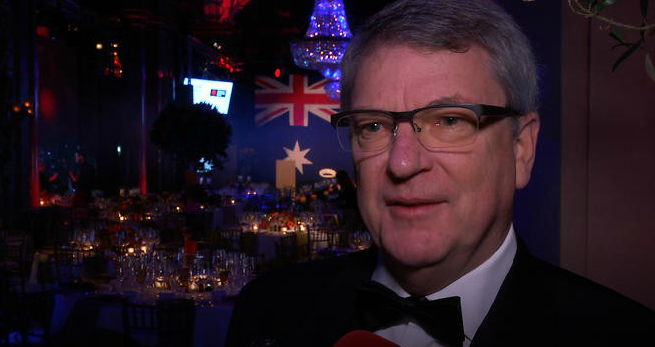Daily catch-up: Why the Tories couldn't win – Lynton Crosby's five truisms
The manager of the Conservatives' winning election campaign settles a few scores with those who said victory was impossible


Your support helps us to tell the story
From reproductive rights to climate change to Big Tech, The Independent is on the ground when the story is developing. Whether it's investigating the financials of Elon Musk's pro-Trump PAC or producing our latest documentary, 'The A Word', which shines a light on the American women fighting for reproductive rights, we know how important it is to parse out the facts from the messaging.
At such a critical moment in US history, we need reporters on the ground. Your donation allows us to keep sending journalists to speak to both sides of the story.
The Independent is trusted by Americans across the entire political spectrum. And unlike many other quality news outlets, we choose not to lock Americans out of our reporting and analysis with paywalls. We believe quality journalism should be available to everyone, paid for by those who can afford it.
Your support makes all the difference.Lynton Crosby, the Conservatives' campaign manager for the 2015 election, spoke at the Centre for Opposition Studies last week. His ostensible subject was: "Oppositions don't win elections, governments lose them." But his main purpose was to settle a few scores with "commentators", which he pronounced with as much disdain as Jeremy Corbyn did the "commentariat".
He said that Labour had fallen for five "truisms" offered by commentators who told them the Conservatives couldn't win. He didn't name the authors, but as he quoted four of them it was easy to look them up. Here are Crosby's five truisms and the commentators guilty of perpetrating them:
1. The Conservatives couldn’t win because constituency boundaries were unreformed. "If the boundary changes are abandoned, it is no exaggeration to say that a Tory majority, difficult to achieve at present, becomes impossible." George Eaton, New Statesman, August 2012.
2. … because of Ukip. “Imagine ... the impact on the Tories next year if Ukip win eight, nine, even 10 per cent, in a general election which, by common consensus, will be even closer than the 2010 contest. Farage could turn out to be the Ross Perot of British politics – splitting the anti-Europe, centre-right vote and thereby handing victory to the pro-Europe, centre-left.” Mehdi Hasan, Huffington Post, May 2014. Ukip won 13 per cent of the vote and the Tory share of the vote increased.
3. … because they are viscerally loathed in the north. “My hunch is that the anti-Tory bias in the North is in danger of becoming part of Northern identity – which is why the Scottish parallel should worry Tory strategists.” Tim Montgomerie, Conservative Home, November 2013. The Tories increased their share of the vote in the north. (Crosby digressed rather entertainingly on the word "strategy" too.)
4. … because Labour had gained a large number of 2010 Lib Dem voters who didn't like the Tory coalition. “Ed Miliband is finding it very hard to persuade voters to switch from Mr Cameron’s party to his. But he doesn’t need to do so in order to nudge Labour’s poll share, come 2015, into the mid-30s or higher: all he must do is to hold on to those Lib Dem defectors.” Paul Goodman, Daily Telegraph, December 2012. In the end, 26 per cent of 2010 Lib Dems voted Labour and 19 per cent of them voted Tory. Not such a big deal.
5. "Given that the Tories could not win in 2010 with Gordon Brown at the height of his unpopularity and the economy in ruins they could never win again. The days of Conservative majority government are likely over." That was Croby's paraphrase of a common view. He didn't attribute it to anyone, but there were many commentators who said governments never increase their share of the vote: I remember pointing out that this wasn't true in 1951, 1955, 1966 or October 1974, although only 1955 was after a full parliamentary term.
The rest of Crosby's talk was educational too: it is summarised here.
• My column for The Independent on Sunday was about our next prime minister: I think it is hard to see who can stop Boris Johnson, another of Crosby's clients (Crosby was his campaign manager for the mayoral elections in 2008 and 2012). A subject to which I hope to return this week.
• The Top Ten in The New Review, the Independent on Sunday magazine, was Original Band Names. I didn't have space for The Angry Young Teddy Bears, which is what the Stone Roses were nearly called, according to Danny Webster.
• And finally, thanks to Simon Blackwell for this:
"Ordered a book from Random House and they've delivered it to some guy in Carlisle."
Join our commenting forum
Join thought-provoking conversations, follow other Independent readers and see their replies
Comments